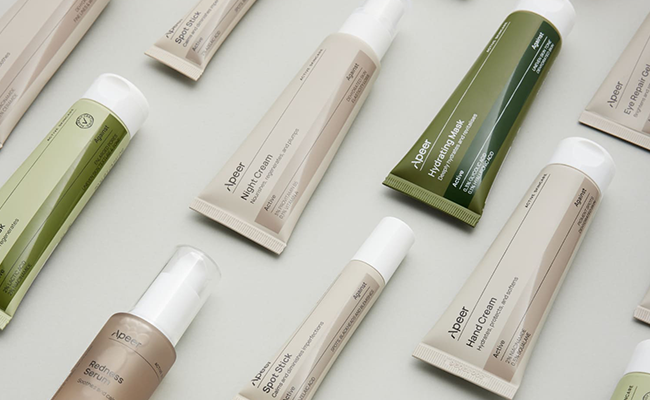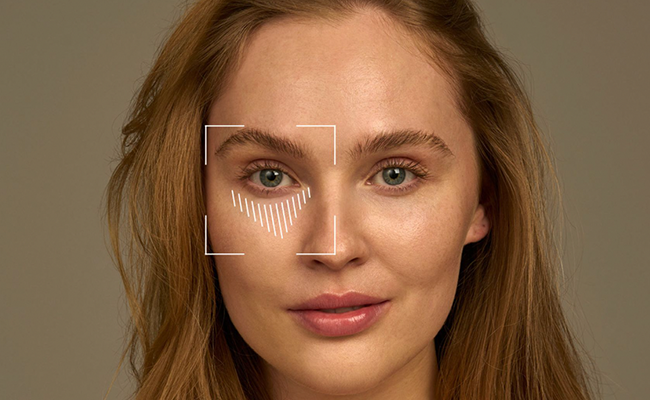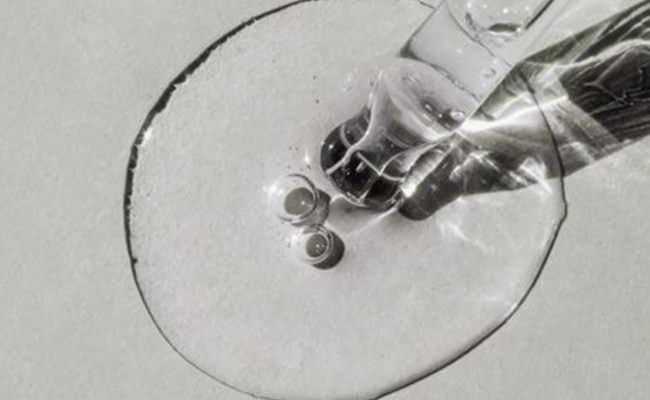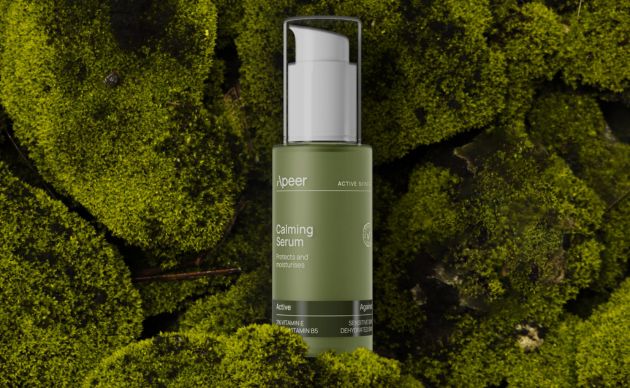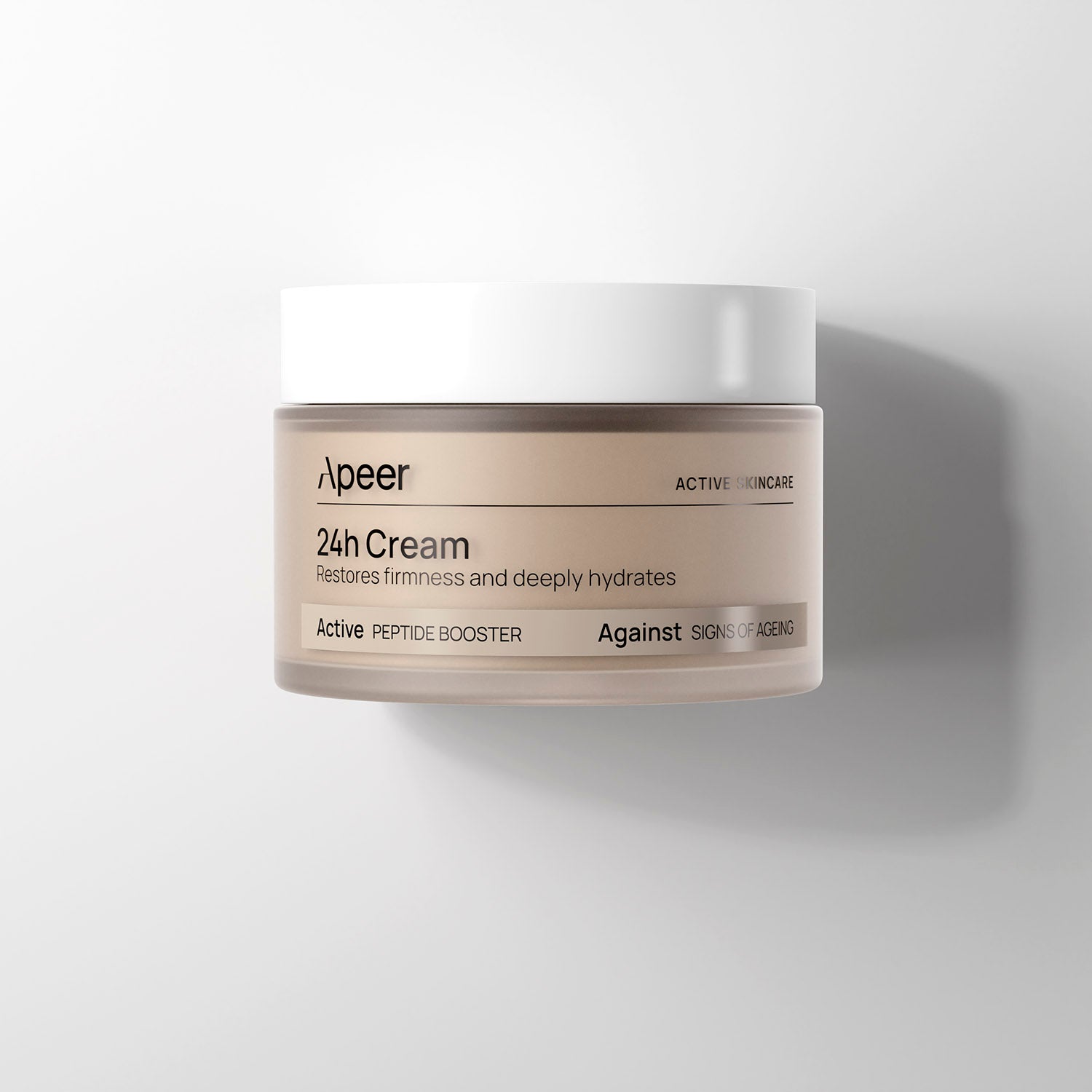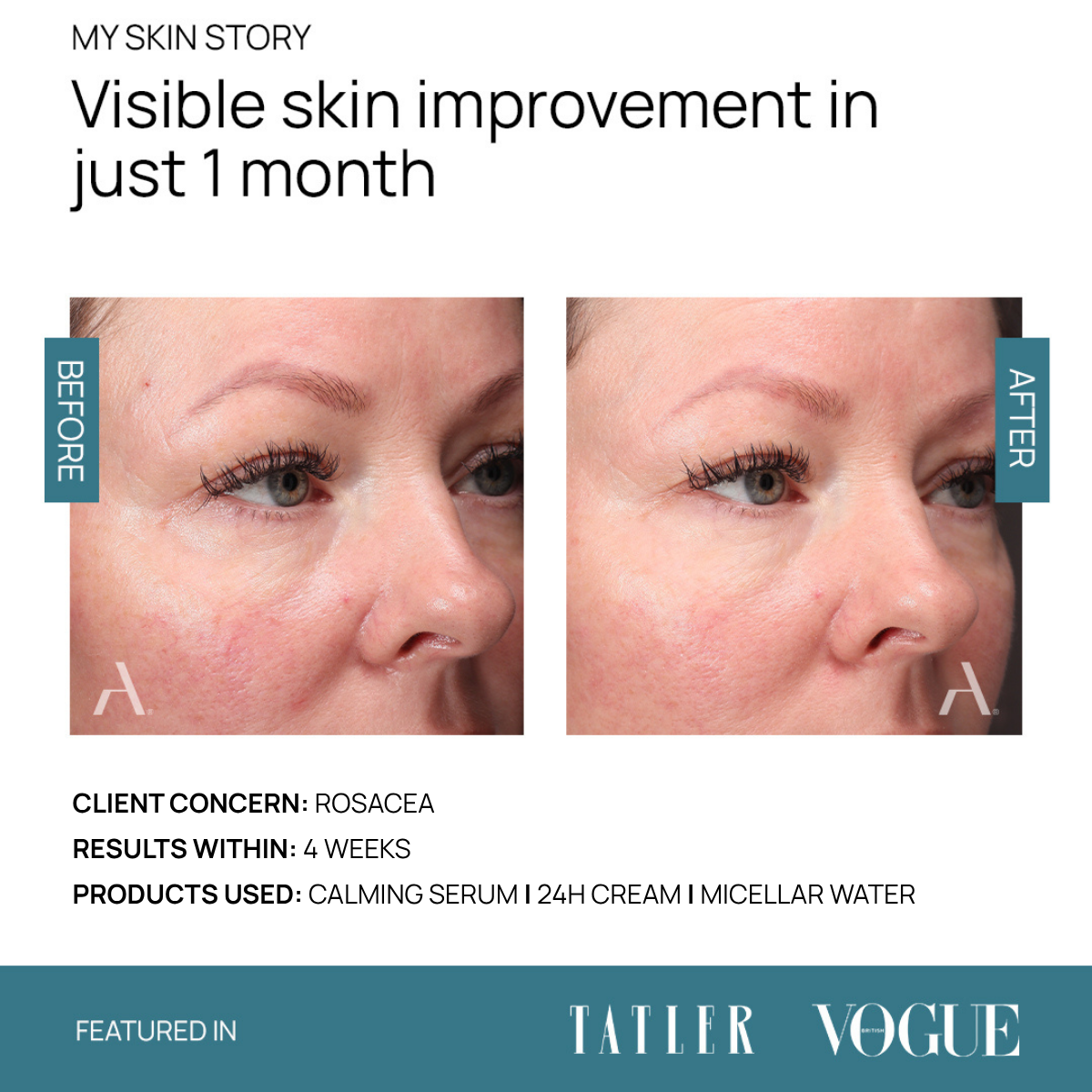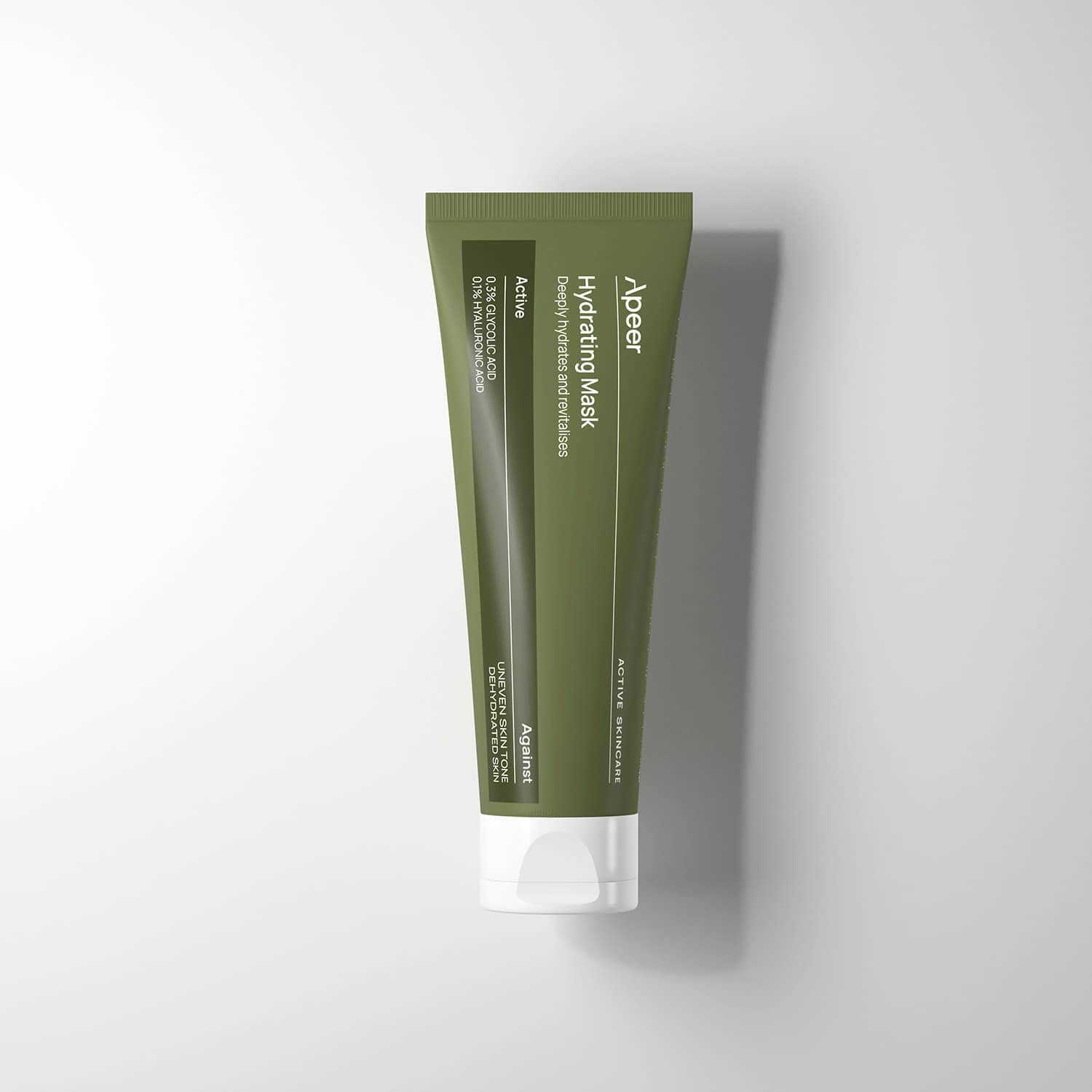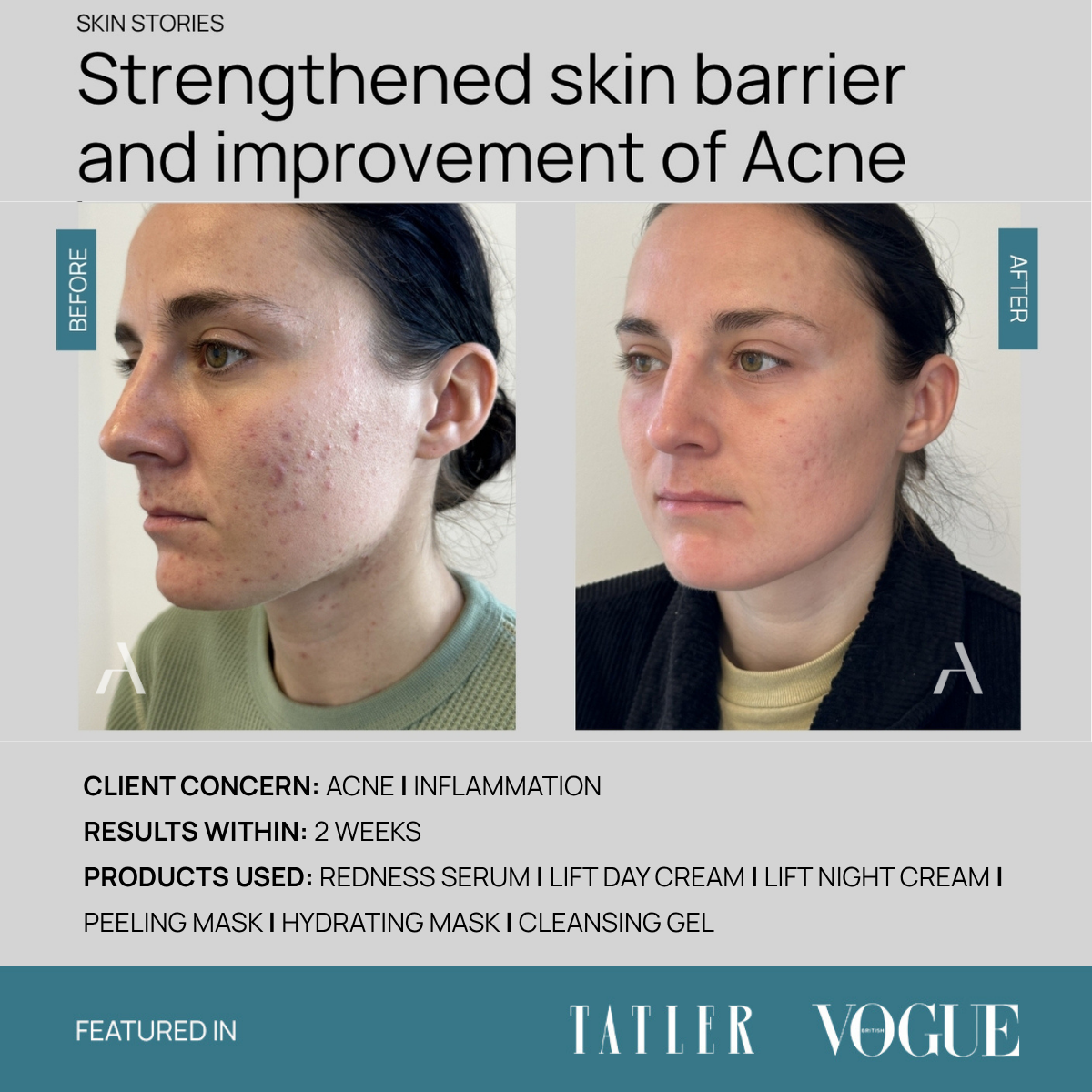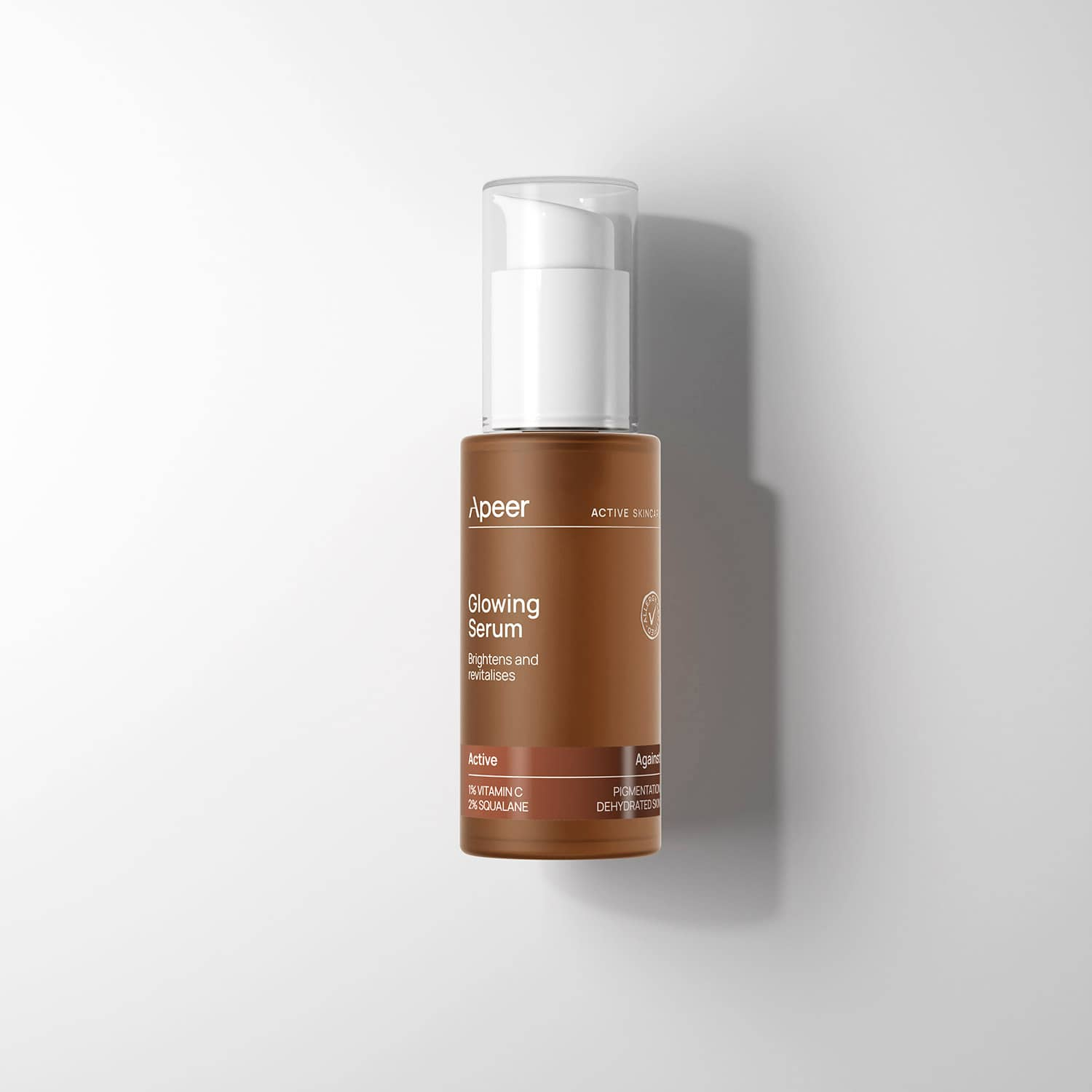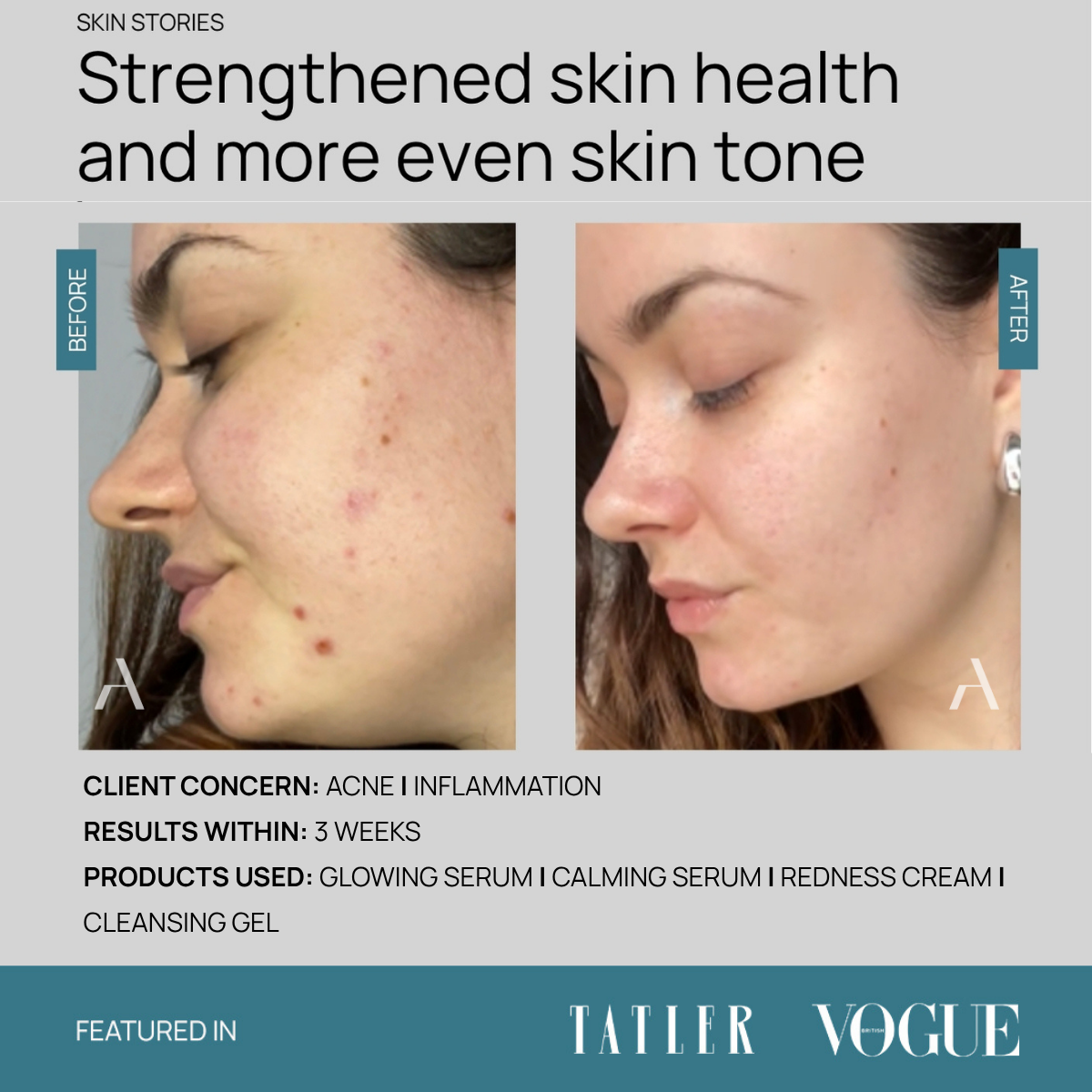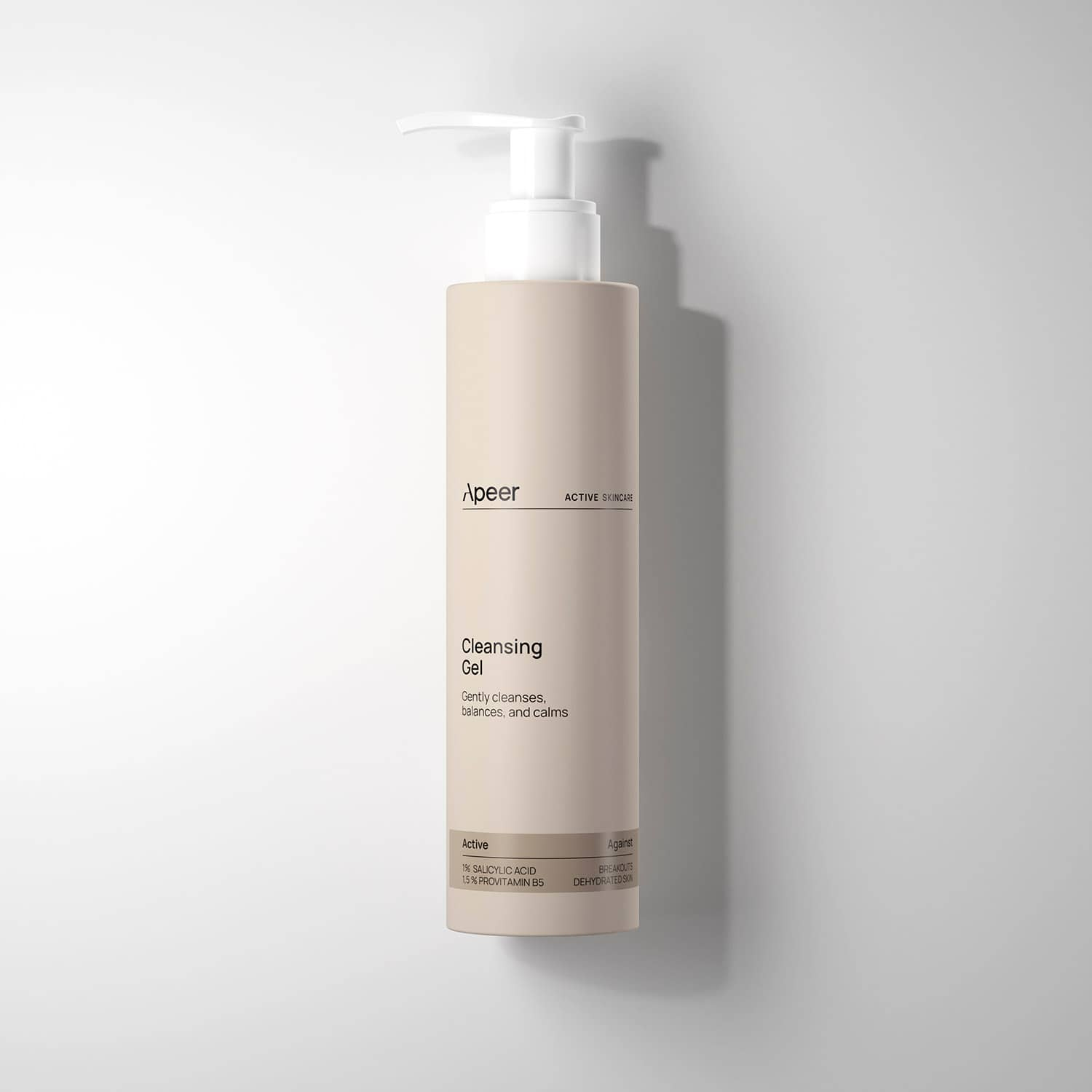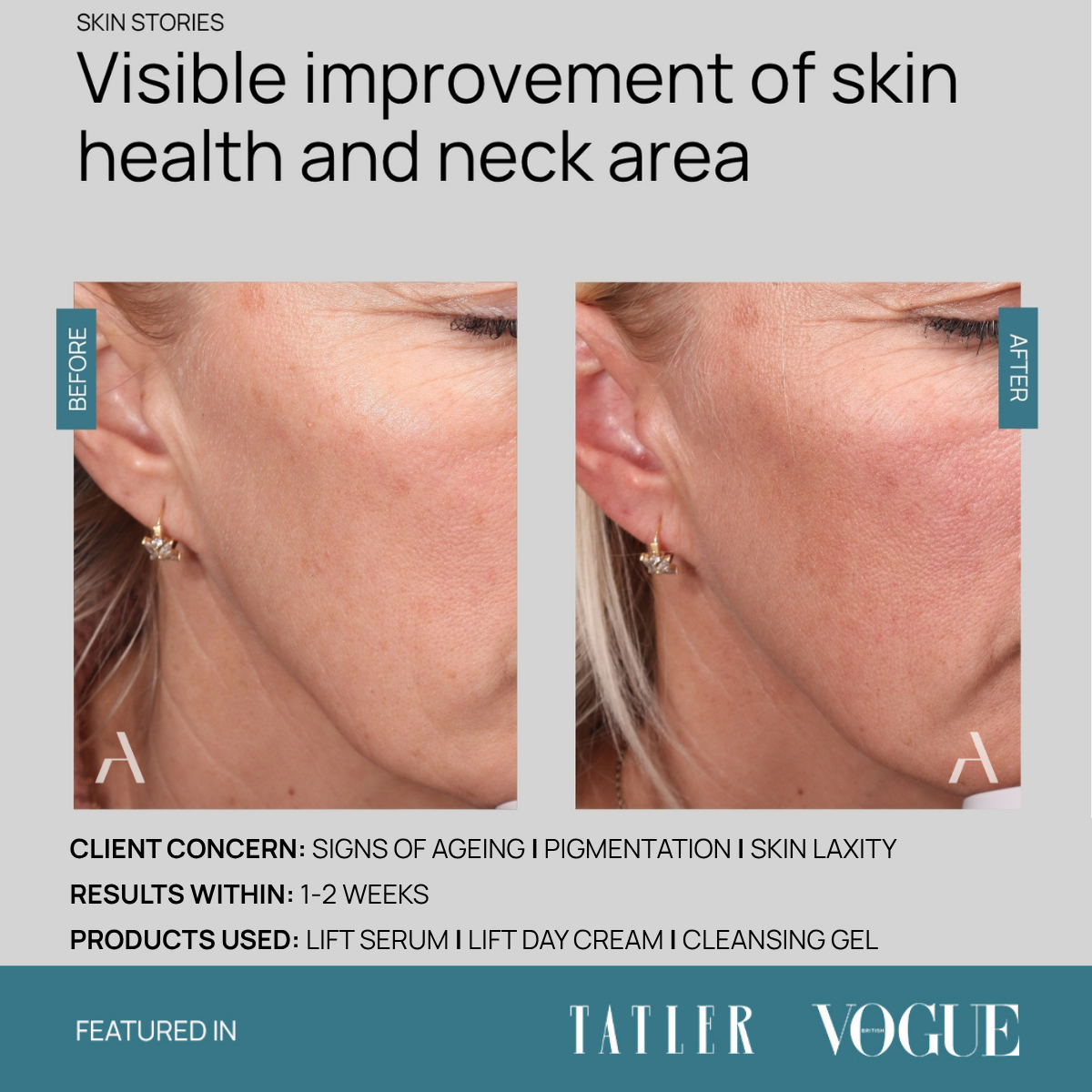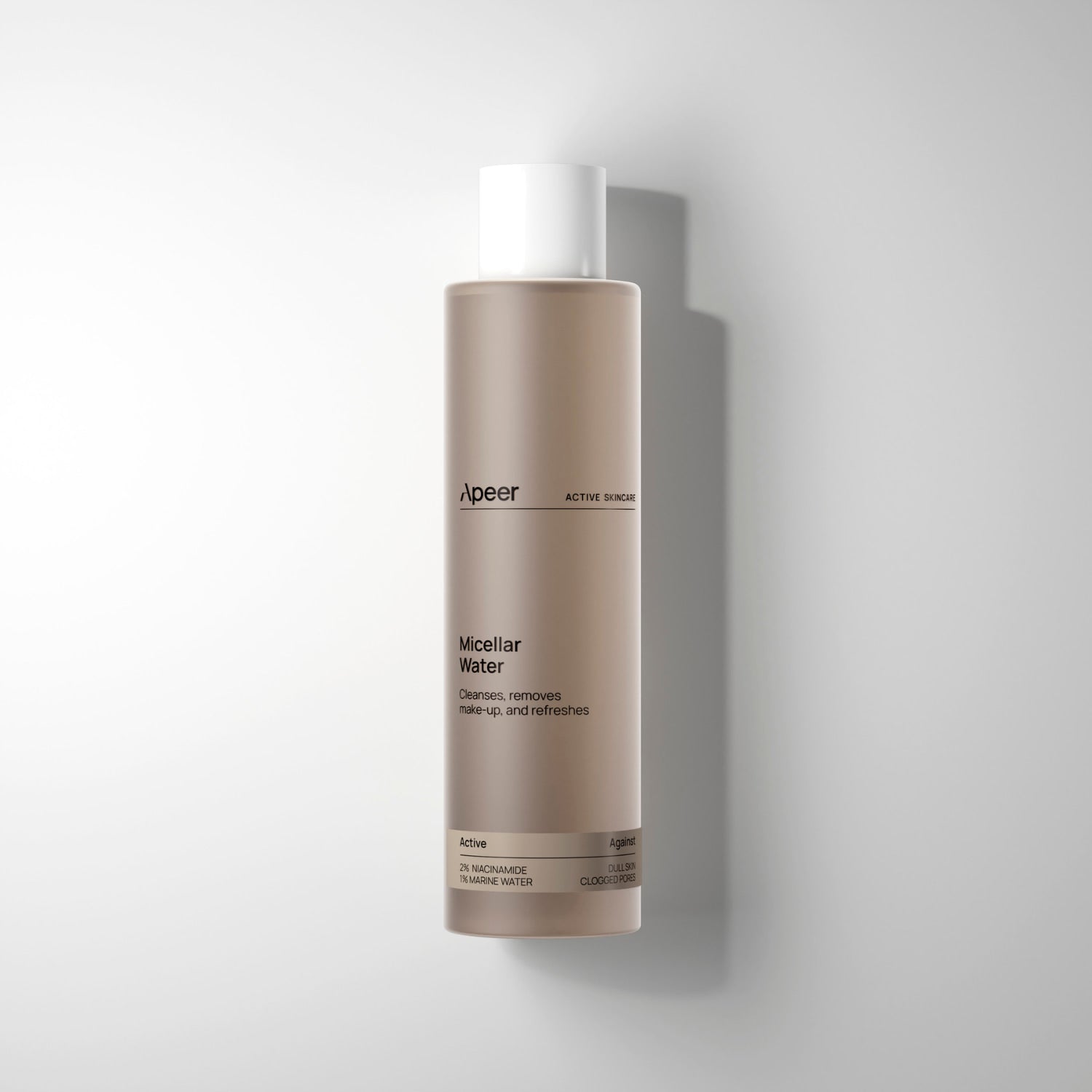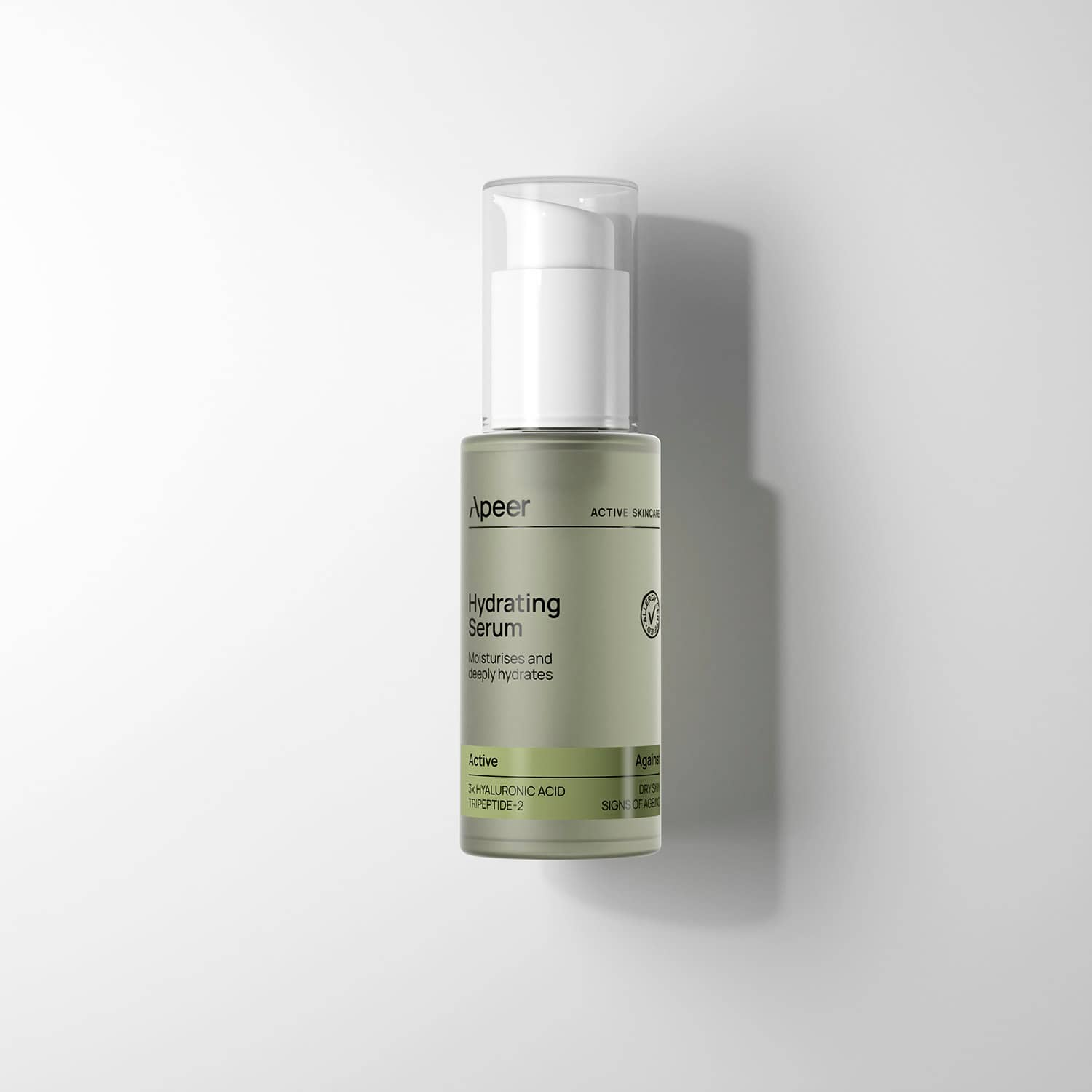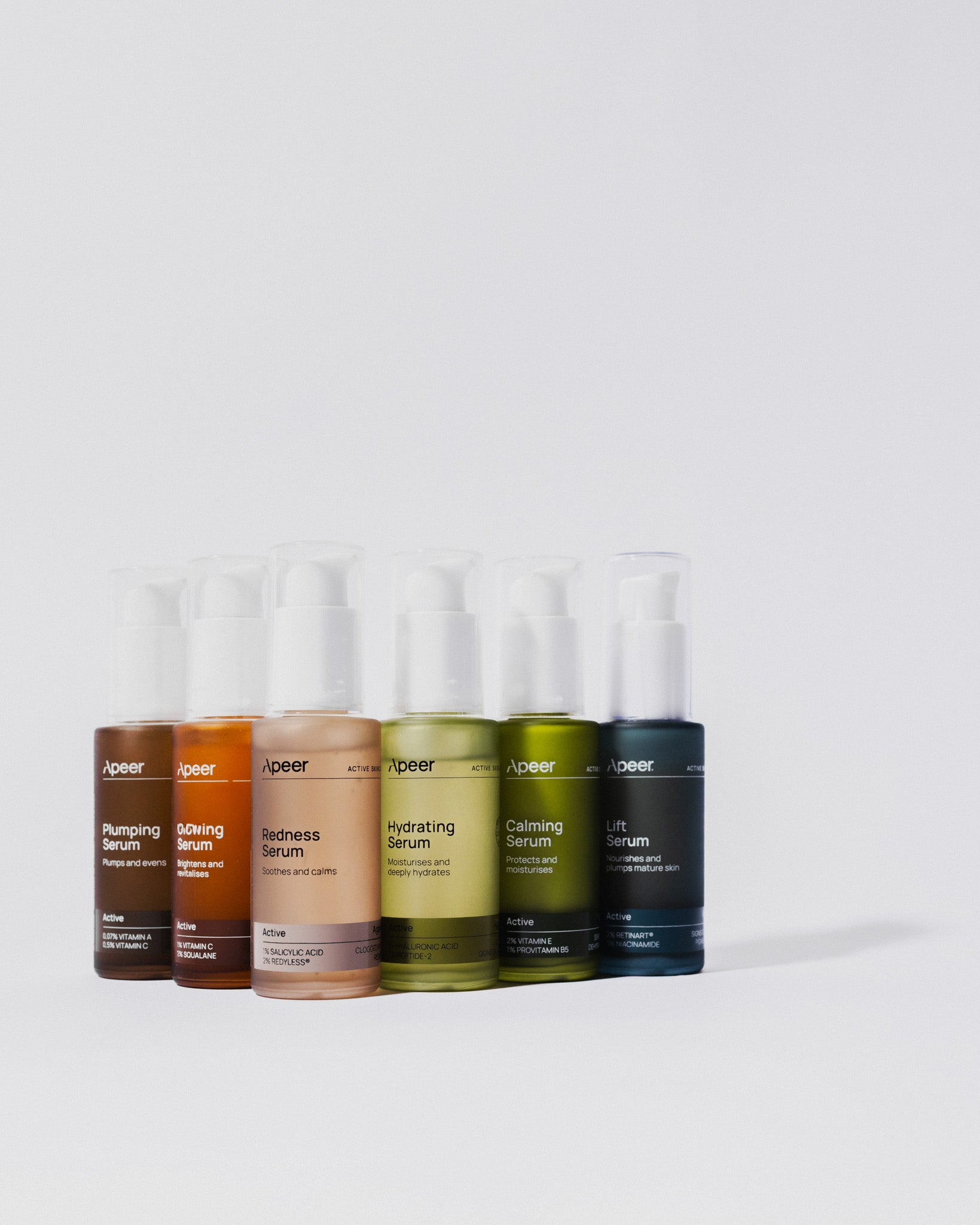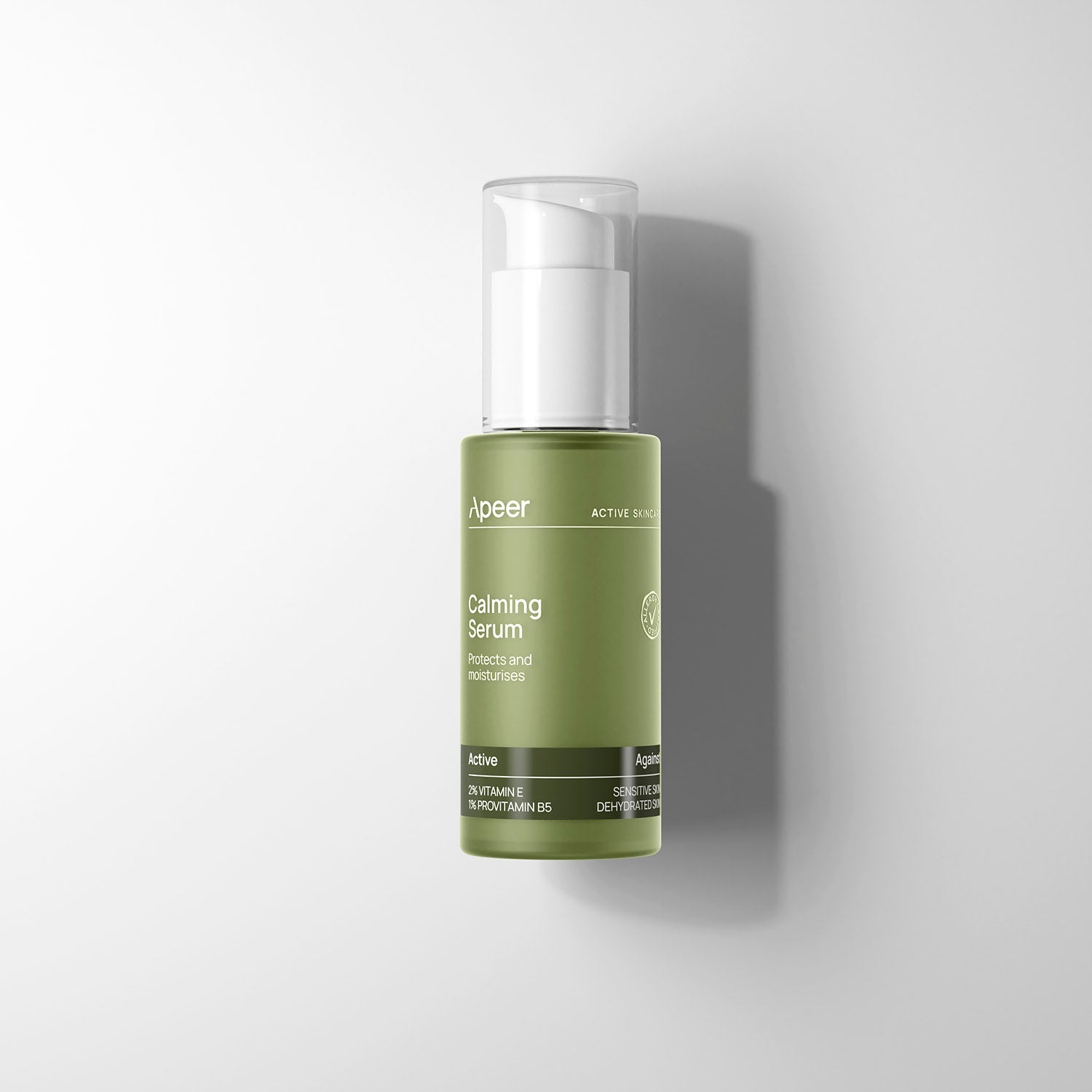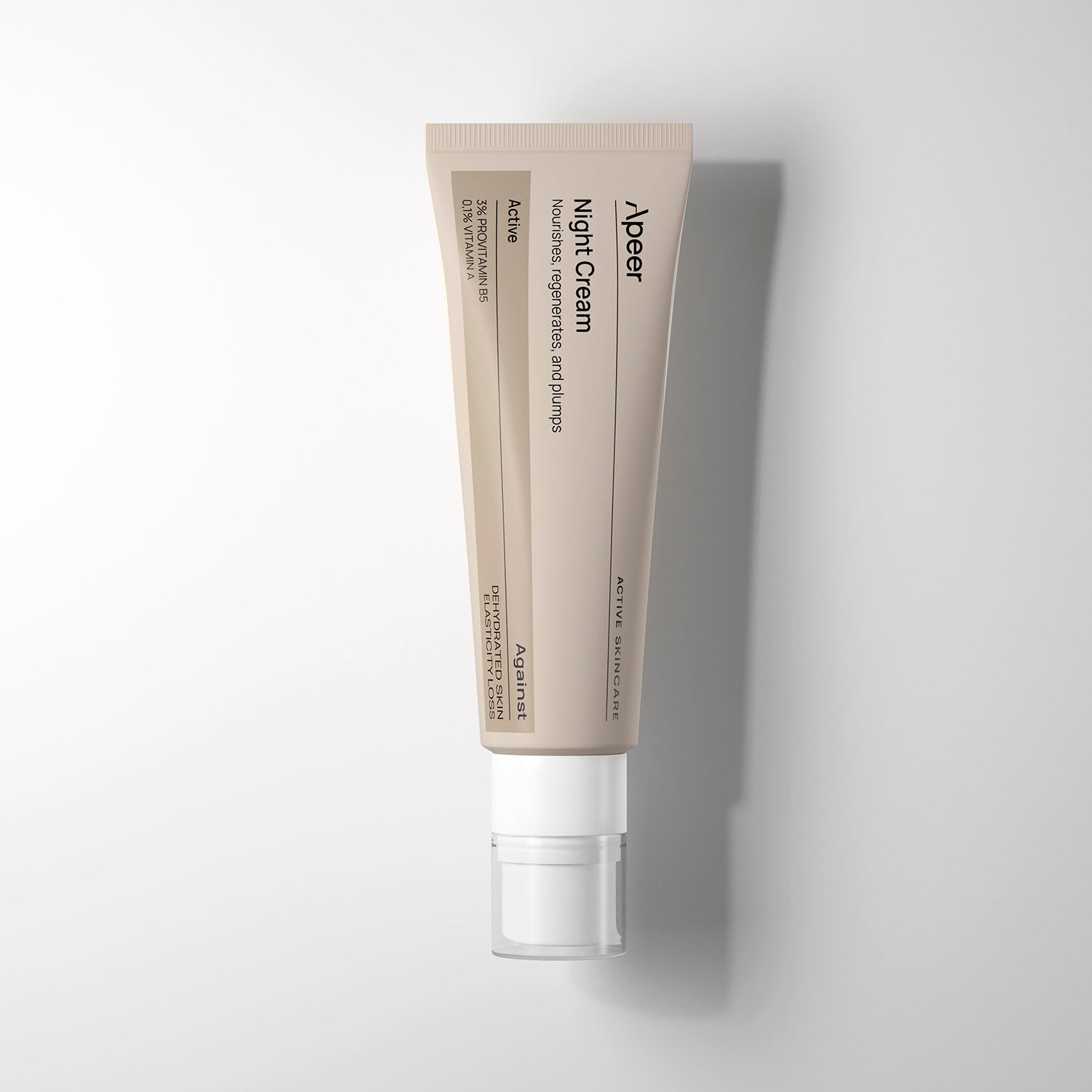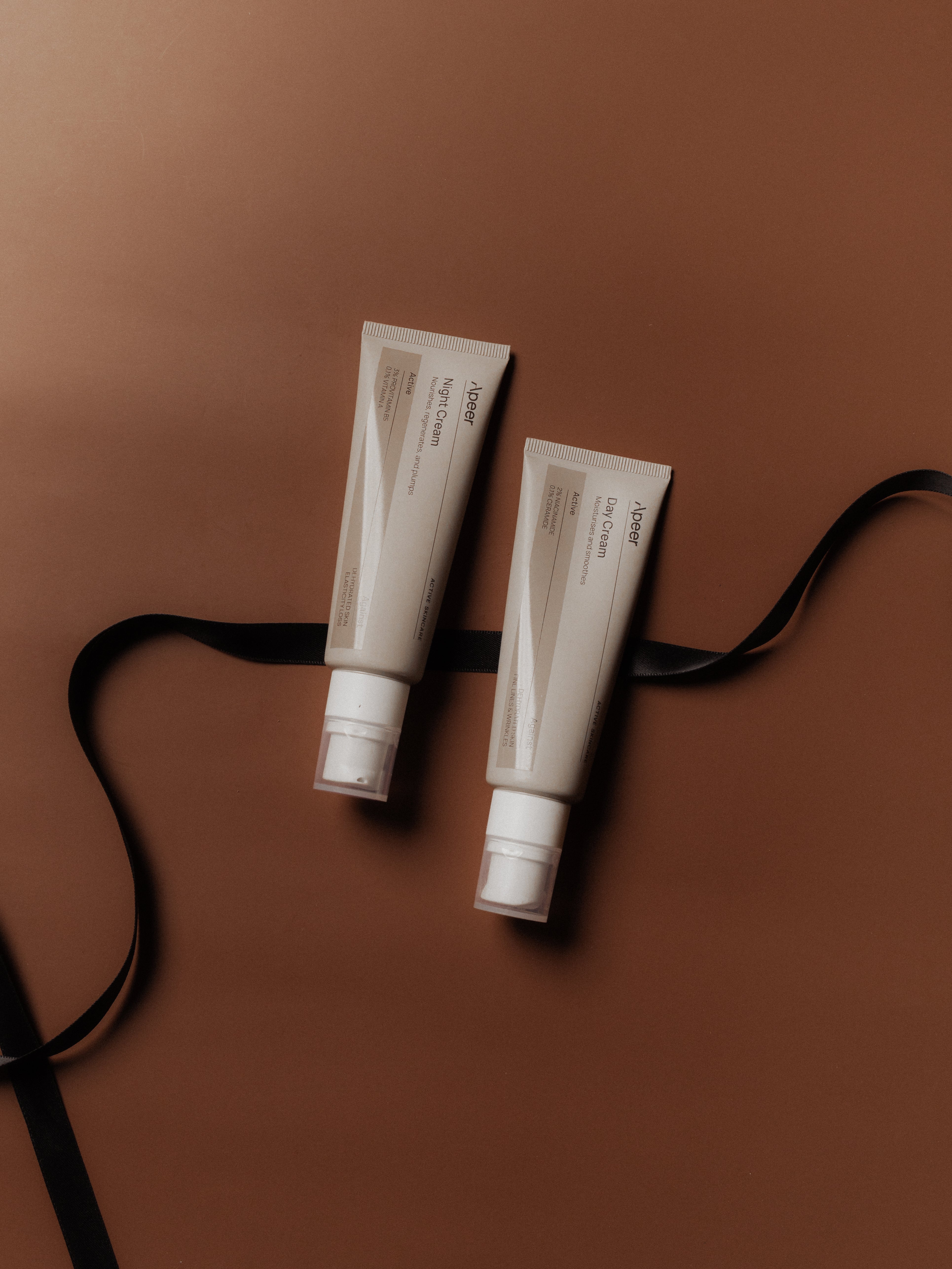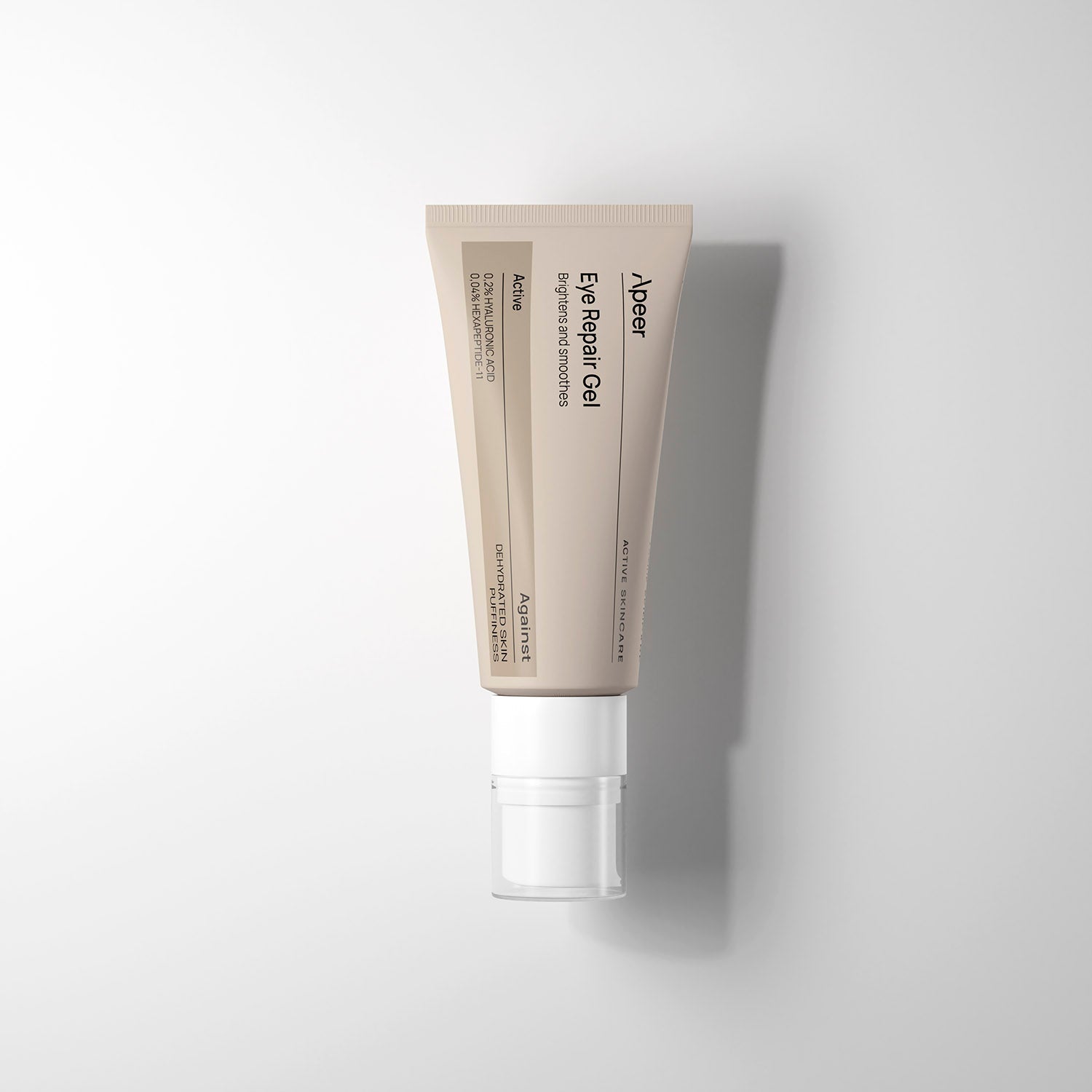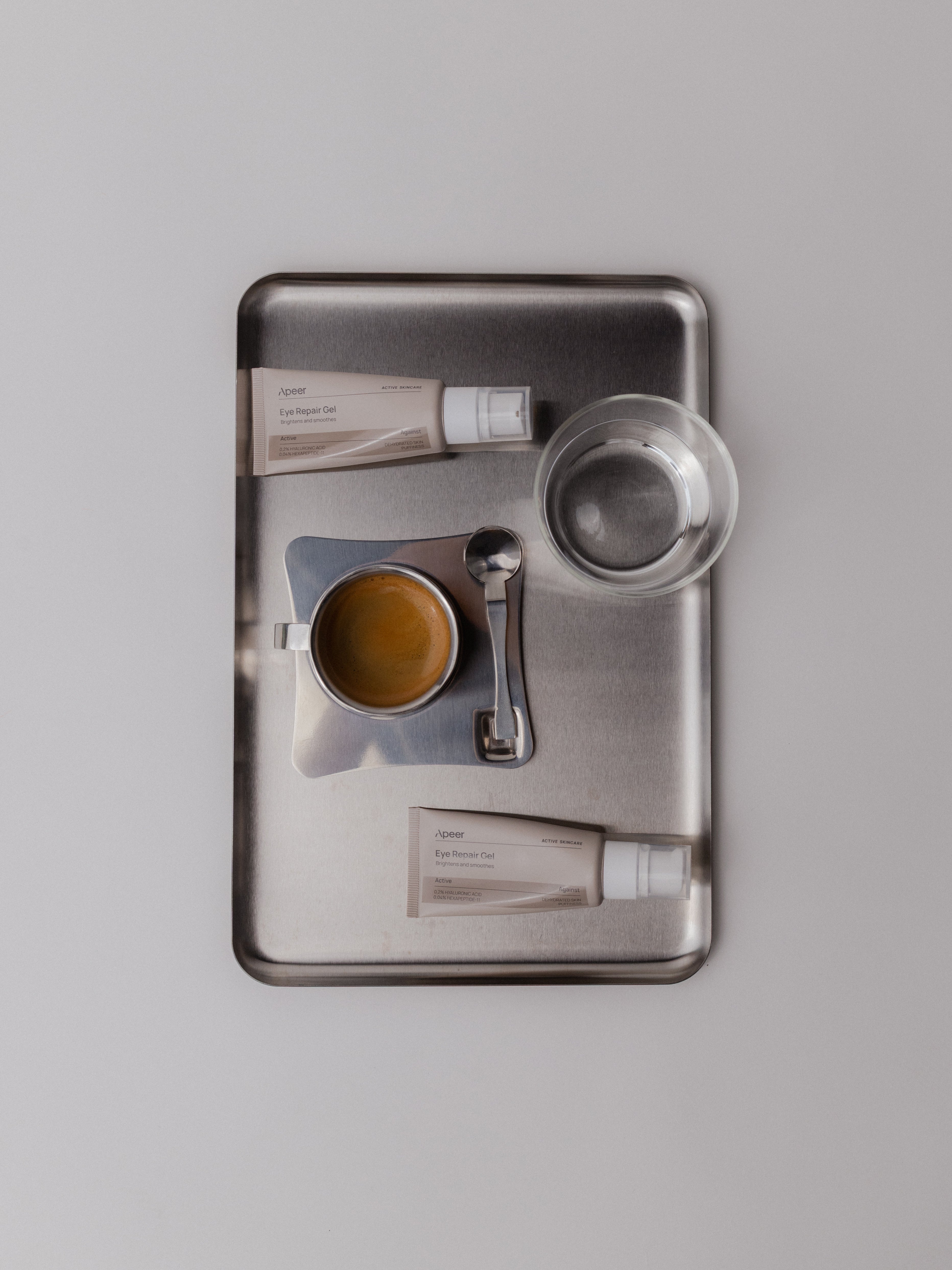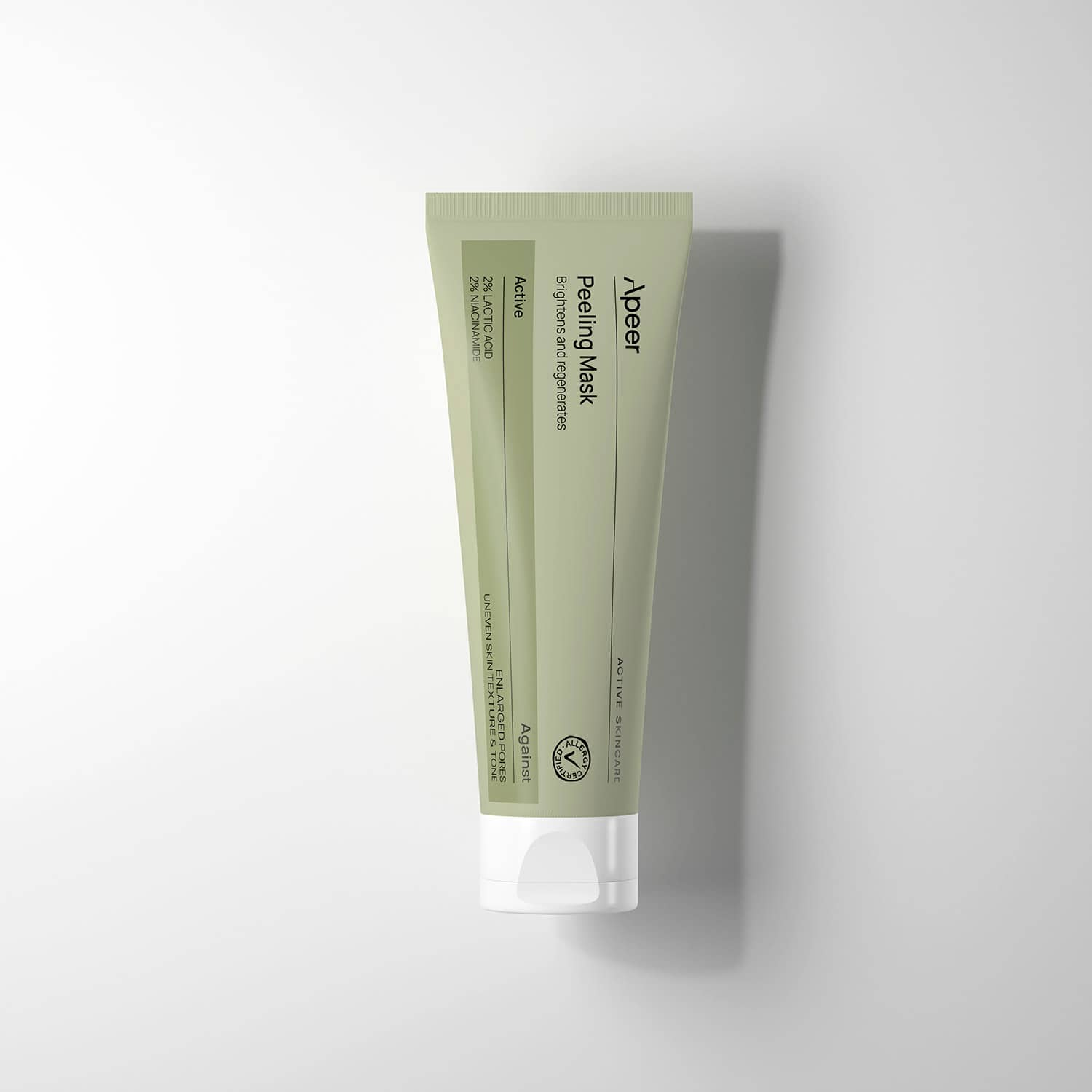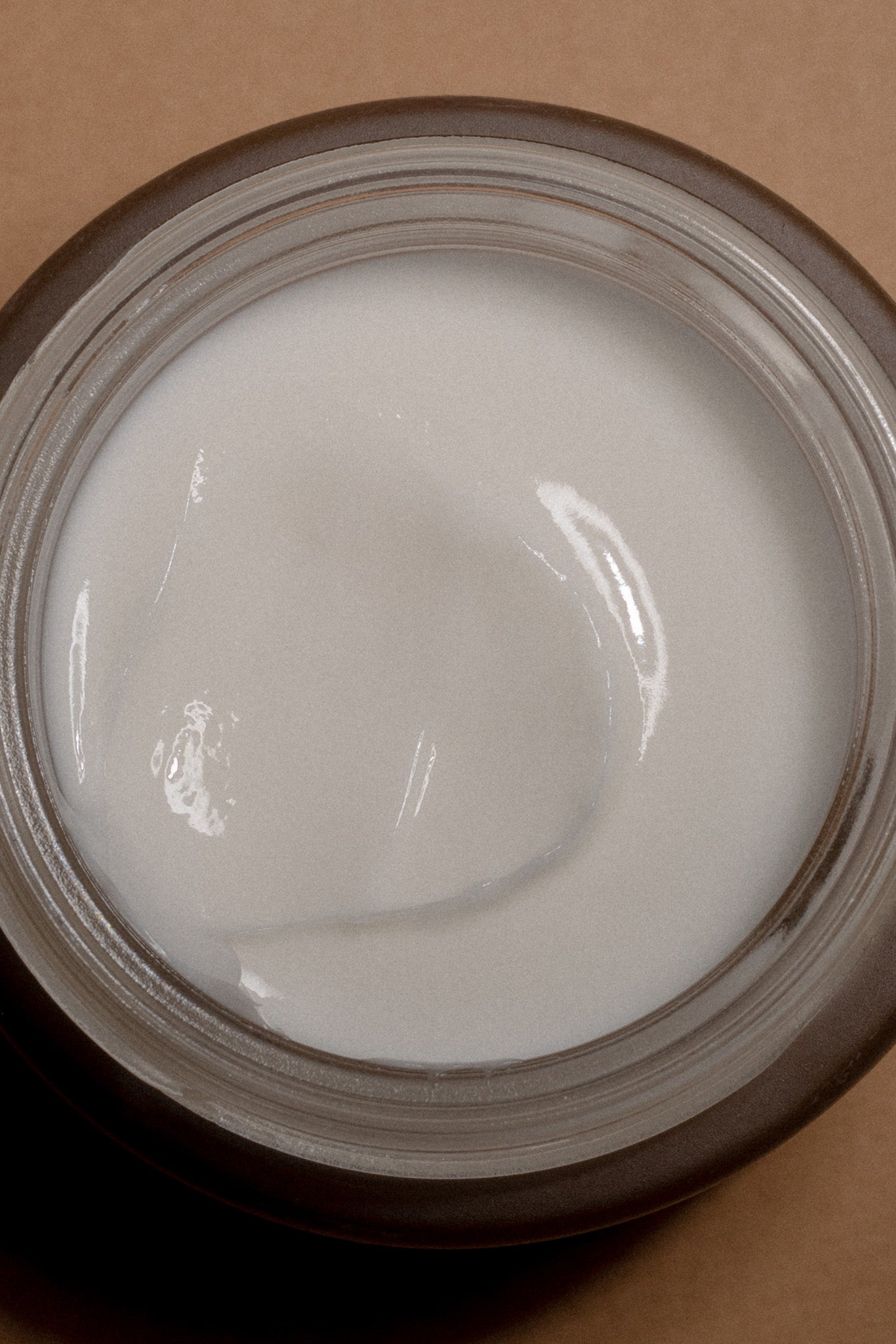Carefully designed for dehydrated skin
Dehydrated skin is not limited to people with dry skin. It can occur in all skin types, but it is temporary. Still, it can be a huge frustration to deal with in your everyday life. We know. And we know skin. Let us share our knowledge and guide you to feel comfortable in your own skin through caring advice, knowledge, and visibly better skin results.
Active
Against
Glycolic Acid
Uneven skin tone
Hyaluronic Acid
Dehydrated skin

Active ingredients for dehydrated skin
01. Antioxidants
Choosing skincare products containing antioxidants that benefit dehydrated skin is an ideal way to manage dehydration. Antioxidants include vitamins A, E, and C which are found in our Plumping Serum (link). These vitamins act as anti-ageing agents restoring elasticity in the skin. As dehydration can be a consequence of premature ageing adding anti-ageing products to your skincare routine is highly recommended.
Active ingredients for dehydrated skin
02. Ceramides
Ceramides are naturally produced in the skin and as the skin ages the production decreases leading to dehydration, dry skin, and wrinkles. Adding a product with ceramides to your skincare routine can help improve hydration and help restore the moisture balance.
Active ingredients for dehydrated skin
03. Hyaluronic acid
Pamper yourself with an intense hydration boost by using our Hydrating Mask (link) with hyaluronic acid. In order to defeat dehydrated skin hyaluronic acid is a key ingredient. It is excellent at retaining water in the skin as well as it adds hydration to the skin making your skin look supple and plump.
Active ingredients for dehydrated skin
04. Glycerine
Glycerine is a popular humectant in skin care as it both retains moisture and prevents moisture loss. It also has emollient properties adding softness to the skin. Adding a serum to your skincare routine can be a great idea when dealing with dehydrated skin as serums contain a higher concentration of active ingredients. Our Hydrating Serum (link) with glycerine helps to effectively lock moisture into the skin kick-starting your journey towards hydrated skin.
FAQ – Dehydrated skin
Dehydrated skin is often used to describe dry skin, but they are not the same. Dehydration describes a lack of water in the skin, which can occur in all skin types. Dry skin is a skin type characterised by low sebum production in the skin leading to dry, tight, and itchy skin. Symptoms of dehydrated skin and dry skin are very similar, but dehydrated skin does not persist whereas dry skin is permanent companionship. If you occasionally experience dry skin and fine lines are more noticeable, it might be due to dehydration and not because you have a dry skin type.
Dehydration is a result of water loss. It can be due to various reasons but it is most often because of incorrect use of skincare products leading to disruption of the skin’s barrier. Diet and weather conditions can also affect your skin and result in dehydrated skin. First, knowing your skin type and concern is necessary in order to find the right skin care and second, consider external factors in your life that might affect your skin.
It is very important to avoid hot showers and remember to use a gentle cleanser in order to not strip the skin of its natural oils. Also, adding plenty of hydrating moisturisers to your skincare routine is crucial for dehydrated skin to regain its strength.
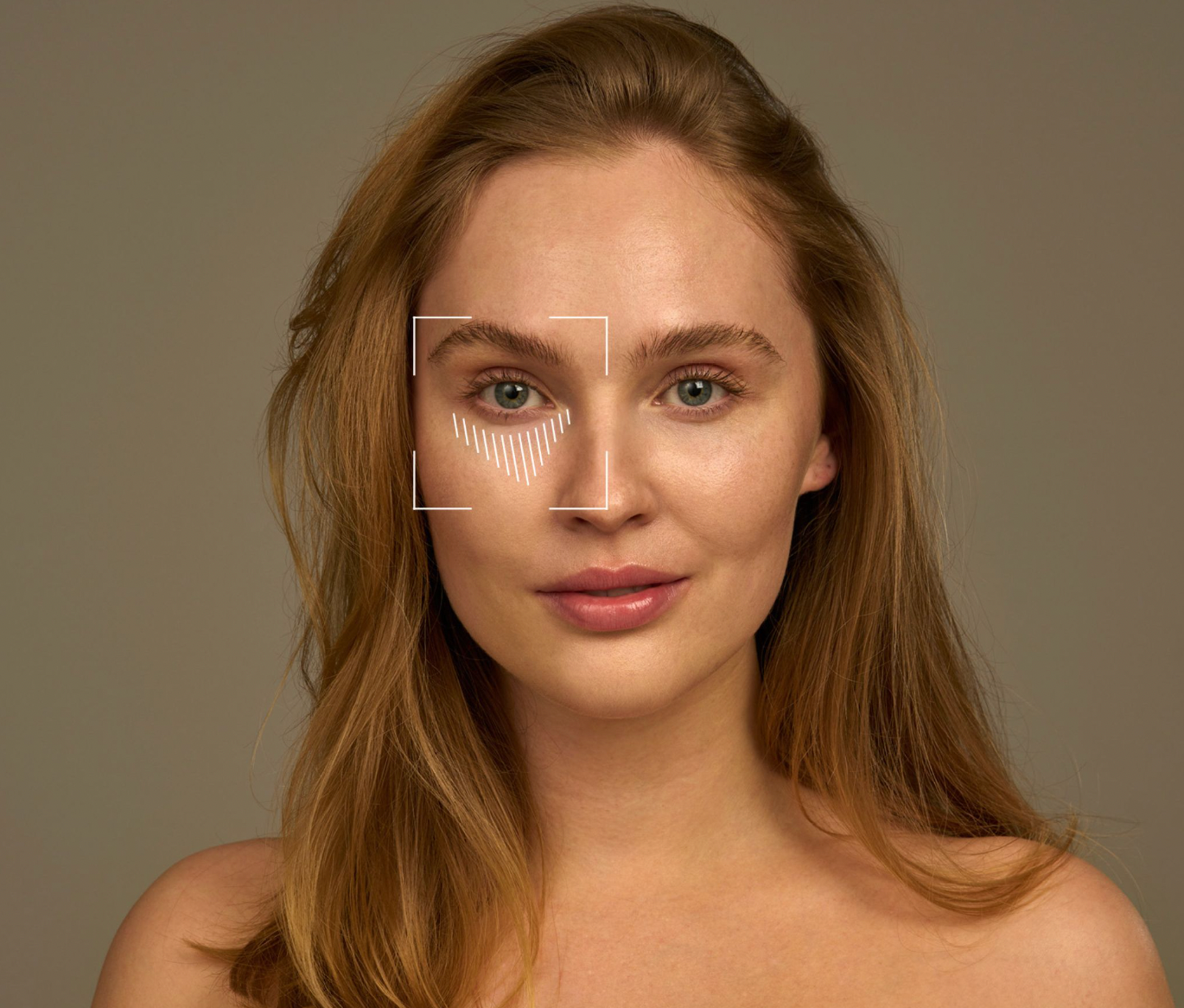

WE KNOW SKIN
Start AI-skin analysis
Knowing your skin is the baseline for all skin care advice following. Get to know your skin.
Active science
Each formula uses the best from green chemistry and uses a fusion of super actives and superfood ingredients.
Dehydrated skin
Dehydrated skin lacks sufficient moisture, leading to a tight and dry sensation. It may also show signs of flakiness or fine lines due to inadequate hydration. Taking care of dehydrated skin involves using moisturizing products that can restore the skin's water balance and avoiding excessive use of drying ingredients.

